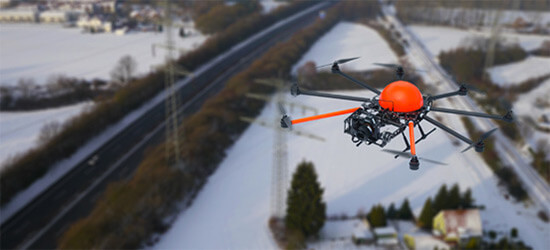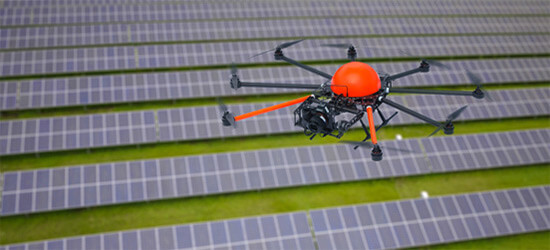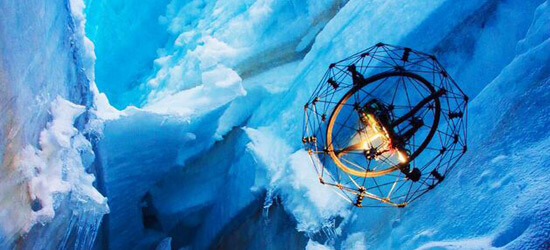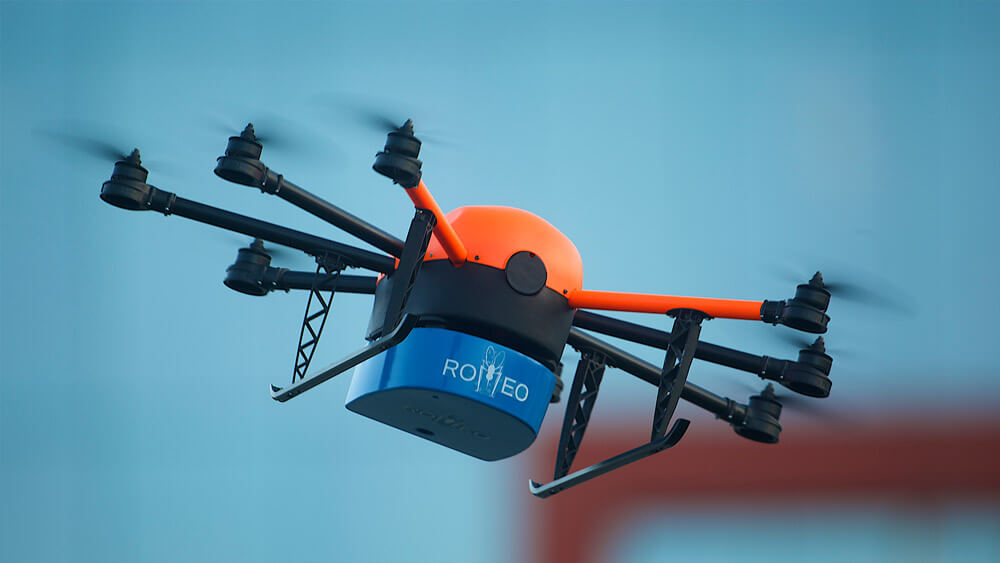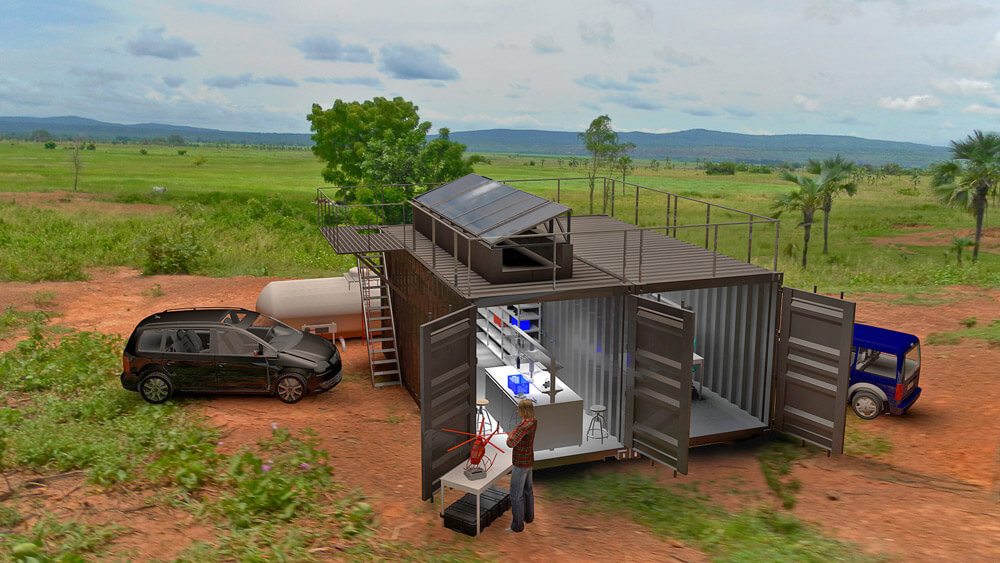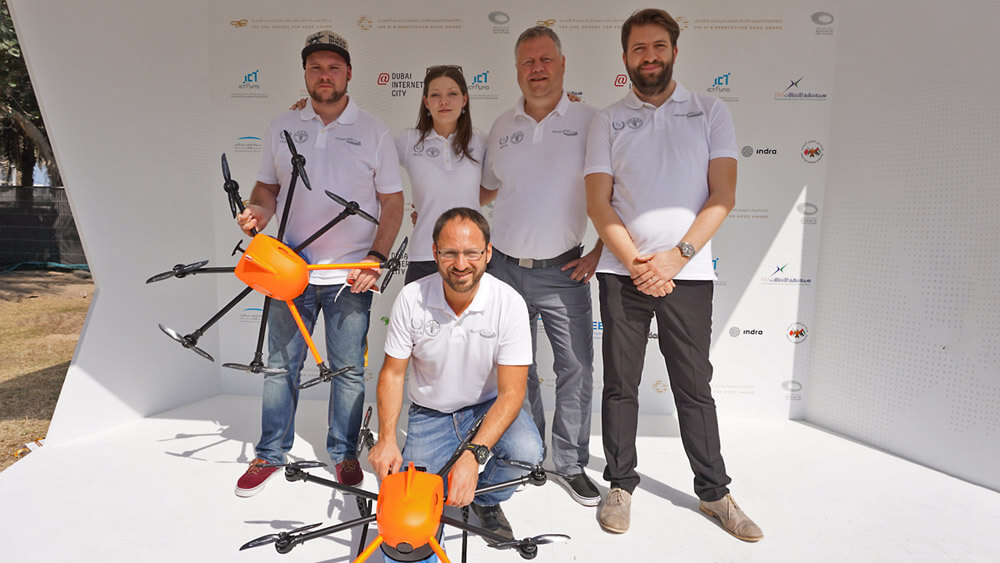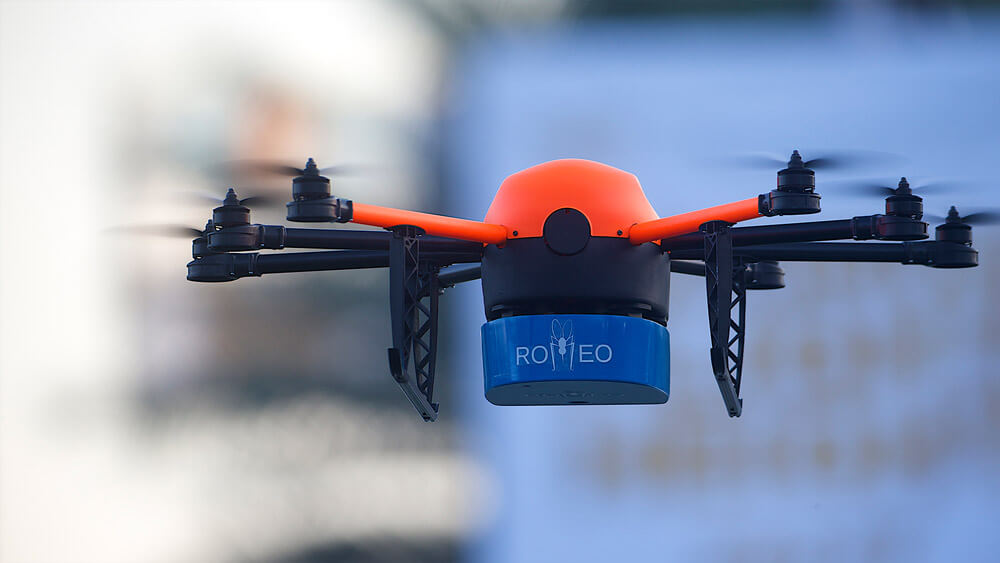Project theme
The MosquitoCopter ROMEO can distribute sterile male mosquitoes in risk areas in which malaria, zika, dengue or other mosquito-borne diseases are a threat to human health. When sterile males are introduced in large numbers, these pair with the naturally occurring females, who then produce no offspring.
Since certain species of female mosquitoes only pair with a mate once in their lifetime, this method can be used to substantially reduce the population of mosquitoes in risk areas and thus lower the risk of infection on a long-term basis.
The challenge
Up to now, very simple techniques have been used for introducing the sterile male mosquitoes. In some cases, they have simply been emptied out in affected areas from plastic containers. Depending on the area, however, ensuring a uniform and efficient distribution is difficult or downright impossible. In areas that cannot be reached on foot or by vehicle, introducing the male mosquitoes has previously been possible only with great effort and at high cost. Because of this, the project partners were seeking a solution in which sterile male mosquitoes could be transported in a cool condition into the target zones and released along a GPS route fully automatically.
The solution
Working together with scientists from the International Atomic Energy Authority (IAEA) and the United Nations Food and Agriculture Organisation (FAO) and partner company FLAIRICS, HEIGHT TECH has developed a system for releasing sterilised male mosquitoes with the name ROMEO (Remotely Operated Mosquito Emission Operation). Researchers at the joint IAEA/FAO laboratory have developed a method for reliably sterilising male mosquitoes. The flight system developed for the ROMEO project can be filled with the insects in the laboratory and then used efficiently in the target zone. Using a special dropping mechanism, the sterilised mosquitoes can be released uniformly and accurately to a given location by drone.
With the ROMEO project, HEIGHT TECH won fourth place in the international ‘Drones for Good’ competition, in a field of over 700 competitors.


